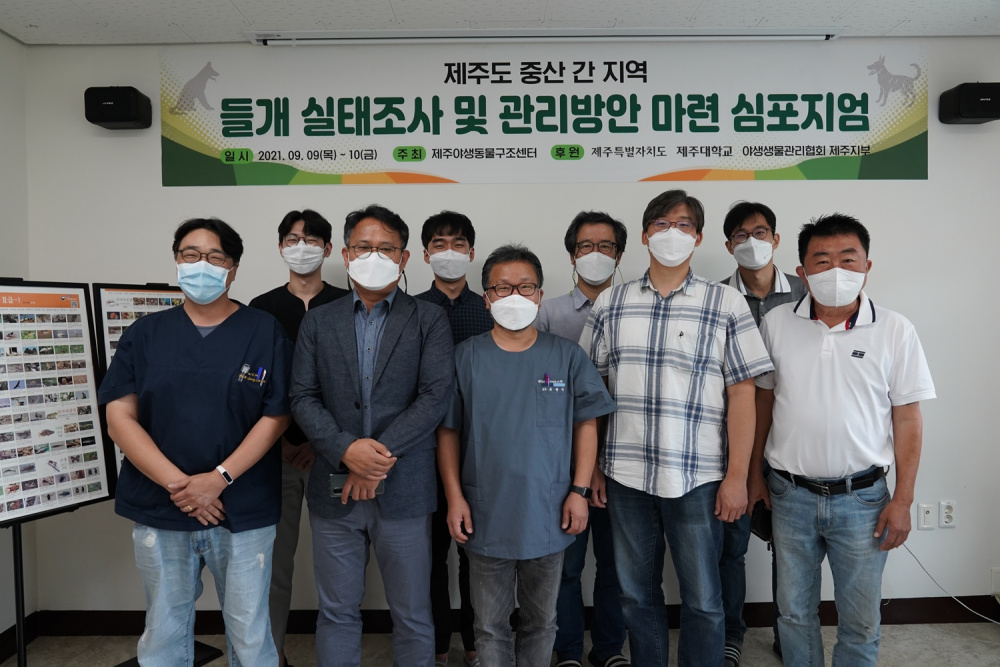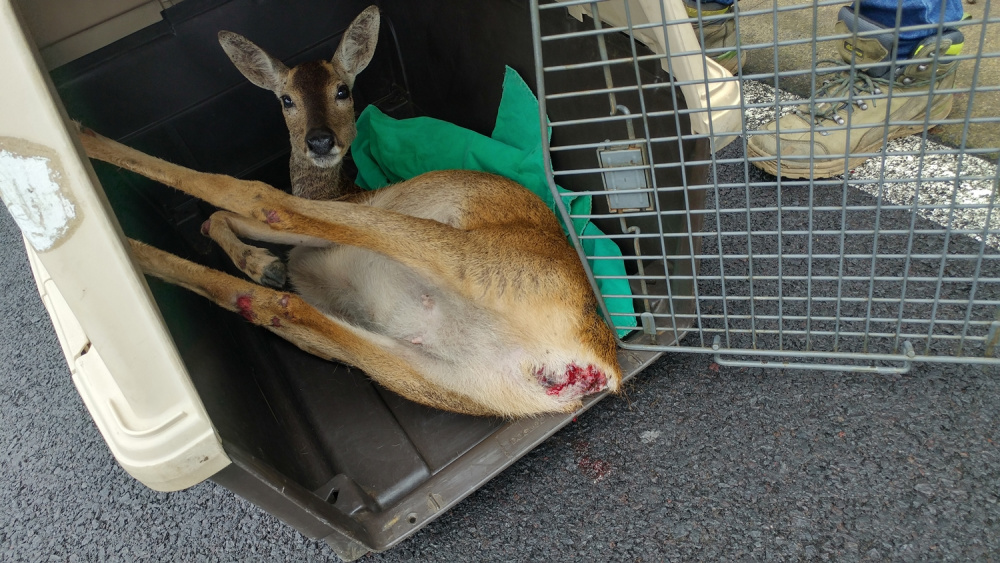Wildlife Rescue Center symposium on stray dog management held
· Writer : Jeju National University ·Date : 2021-10-06 00:00:00 ·View : 31
-
noImage
야생동물구조센터, '들개 관리방안' 심포지엄
Wildlife Rescue Center symposium on stray dog management held

A symposium was held on the investigation of current status of stray dogs and their management options, Jeju National University’s Wildlife Rescue Center (Jeju Wildlife Rescue Center) announced on Monday (Sept. 13).
Amid the increasing social concerns over the stray dogs, the event was organized to discuss the national and local impact of wild dogs on humans and the forest ecosystems.
Early on Sept. 10, the invited experts were gathered in the conference room of the center and shared their ideas on the measures to properly manage stray dogs on a continued basis.
Yun Youngmin, the director of the Jeju Wildlife Center, shared some of the survey findings on the local public awareness of wild dogs, adding that of the many respondents who had mentioned seeing street dogs, some had even been attacked by the dogs.
Choi Gwang-hoon, a researcher in the Kookmin University’s Department of Forest and Environmental System, pointed out damage on roe deer in the Jeju region has occurred due to the wild dog attack since 2015. According to his analysis, the local stray dogs are usually distributed in the mountain areas with some groups inhabiting coastal human residents. The researcher called for a more scientific and systematic monitoring and investigation.
The panelists included Jang Ho-jin in the Jeju branch of the Wildlife Management Association, Park Chan-yeol in the National Institute of Forest Science, Ko Dong-wook in the Kookmin University’s Department of Forest and Environmental System, and Song Dong-ha, CEO of Smarcle Corp.
Park explained that the recent increase in the number of street dogs and their contact with people have emerged as a cause of disrupting the forest recreational activities of the citizens. The COVID-19 pandemic would encourage more people to try outdoor activities and likely involve the increasing adverse impact of wild dogs on the forest ecosystems, he stressed.
Ko called for policy research as the current statutes define wild dogs as abandoned animals that need to be captured live, despite the damage of assets and the loss of life they often cause.
Specifically, the professor emphasized on the need for a systematic monitoring and the habitat analysis to provide spatial information on the possible risk factors to the citizens.
Song briefed the participants on the necessity of developing new technologies that are easily accessible and applicable in daily lives.
To secure the reliance of the statistics on the number of wild dogs, the Internet of Things technique could be used to develop a new measure to manage wild dogs, he added.













 예비대학생
예비대학생 재학생
재학생 졸업생
졸업생 일반인
일반인 교직원
교직원